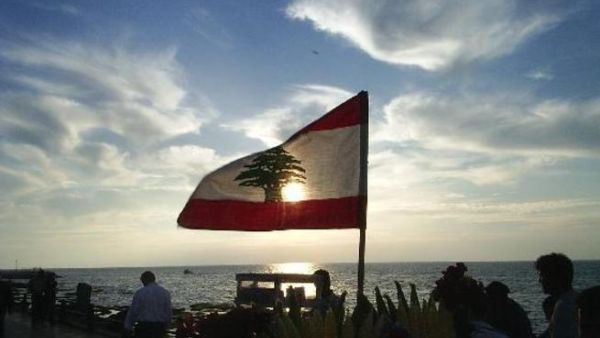Lebanon’s leading businesses and bankers warned Friday that the country could further face further economic deterioration if the president of the republic is not elected soon.
“We cannot expect investors and donators to come to Lebanon in the absence of a president of the republic and the only people we are able to attract nowadays are drug dealers and terrorists,” said Mohamed Choucair, the president of the Chamber of Commerce, Agriculture and Industry.
Lebanese lawmakers have failed 11 times to elect a president despite repeated calls from the Maronite patriarch, leading religious figures and the international community to fill the vacant post.
March 8 MPs have boycotted successive Parliament sessions to elect a president, saying they will not attend until an agreement is reached ahead of time on a new head of state.
Choucair warned of dire social consequences due to the absence of a president and the stalemate in government institutions.
“No security measures whatsoever will be able to prevent social problems from arising if more businesses close their doors and go bankrupt,” he said.
His remarks came during a news conference held at the Chamber of Commerce, Industry and Agriculture to highlight the challenges facing economic sectors in the midst of political and security instability. The news conference was attended by the heads of various economic associations.
Choucair expressed his sympathy with the Syrian refugees while drawing attention to the negative impact of their presence on the Lebanese economy. “ Lebanon is responsible for helping Syrian refugees, but we cannot accept illegal competition from Syrian factories and businesses because it is driving Lebanese SMEs [small and medium enterprises] out of the market,” he said.
A recent World Bank study said that the total cost of the crisis for Lebanon would reach $7.5 billion by the end of 2014.
Adnan Kassar, chairman of the General Union of Arab Chambers of Commerce, Industry and Agriculture, urged officials to perform their duties to avert a social disaster in the country. “We want our officials to cooperate with us in order to save our country,” he said.
Kassar added that the tourism and trade sectors had been suffering for the past two years despite the slight improvement that was witnessed following the formation of Tamam Salam’s government.
He emphasized the need to take practical measures to protect the country from the negative repercussions of the turmoil taking place in the Arab region.
Fadi Gemayel, president of the Association of Lebanese Industrialists, highlighted the losses incurred by the Lebanese economy between 2011 and 2014, which are estimated at $13 billion. “We are wasting great opportunities to improve government services such as electricity and building wells, and to deal properly with the oil and gas sector,” he said.
He continued by asking: “How can citizens live with the lack of job opportunities, proper electricity and water supply, with the high flow of Syrian refugees into the country and the increase in terrorist attacks?”
Gemayel added that Lebanon had proved to be very resilient in the years 2009 and 2010 while the whole world was suffering from the global financial crisis. “But unfortunately the growth rate has dropped remarkably in the past couple of years,” he said.
A few months ago, the World Bank projected Lebanon’s GDP growth in 2014 at 1.5 percent, while the International Monetary Fund estimated the GDP at around 1 percent only.
Nicolas Chammas, president of the Beirut Traders’ Association, also said that the economy was deteriorating, there was an the absence of growth and a drop in the purchasing power of citizens.
He added that the deficit in the government’s treasury had become obvious with its inability to adequately support the Public Housing Corporation, the National Social Security Fund and other public entities such as hospitals.
The BTA president expressed his surprise at Parliament’s inability to elect a president for the republic.
“The parliament has in the past been able to elect five presidents consecutively; why aren’t they able to achieve this sacred duty today?” he asked.
For his part, Pierre Achkar, president of the Hotel Owners’ Association, criticized officials for extending the term of the Lebanese parliament. “They say they are extending Parliament’s term due to the exceptional security situation. Why don’t they take into account our exceptional difficult circumstances and exempt us from fulfilling our responsibilities toward the government’s institutions?” he asked.
Francois Bassil, president of the Association of Banks, said that the presidential vacuum would probably lead to further economic deterioration, which would, in turn, affect the banking sector.
Read more: http://www.dailystar.com.lb/Business/Local/2014/Sep-13/270524-business-leaders-sound-alarm-on-presidential-vacuum.ashx#ixzz3DISm2wjn
(The Daily Star :: Lebanon News :: http://www.dailystar.com.lb)








